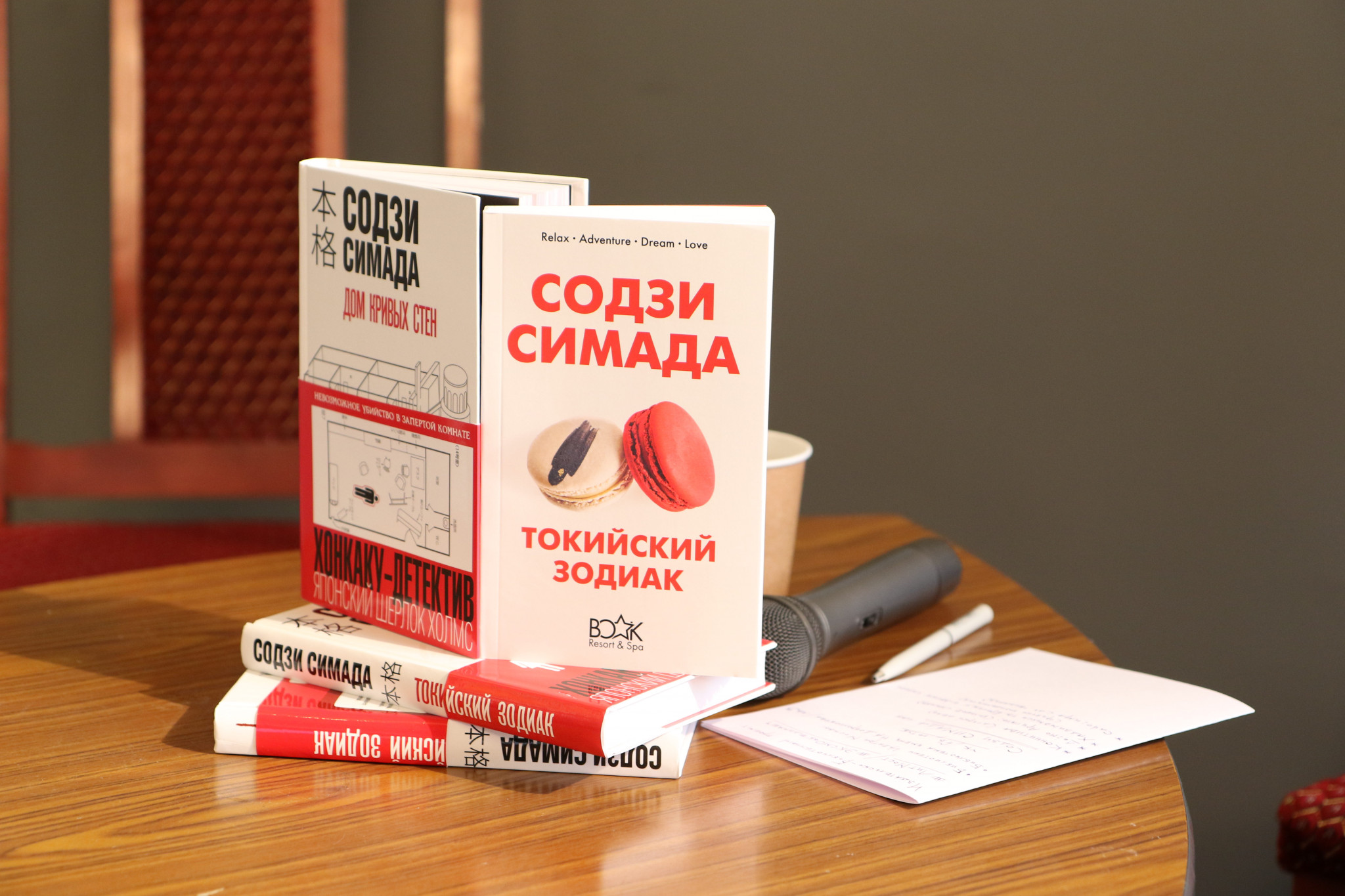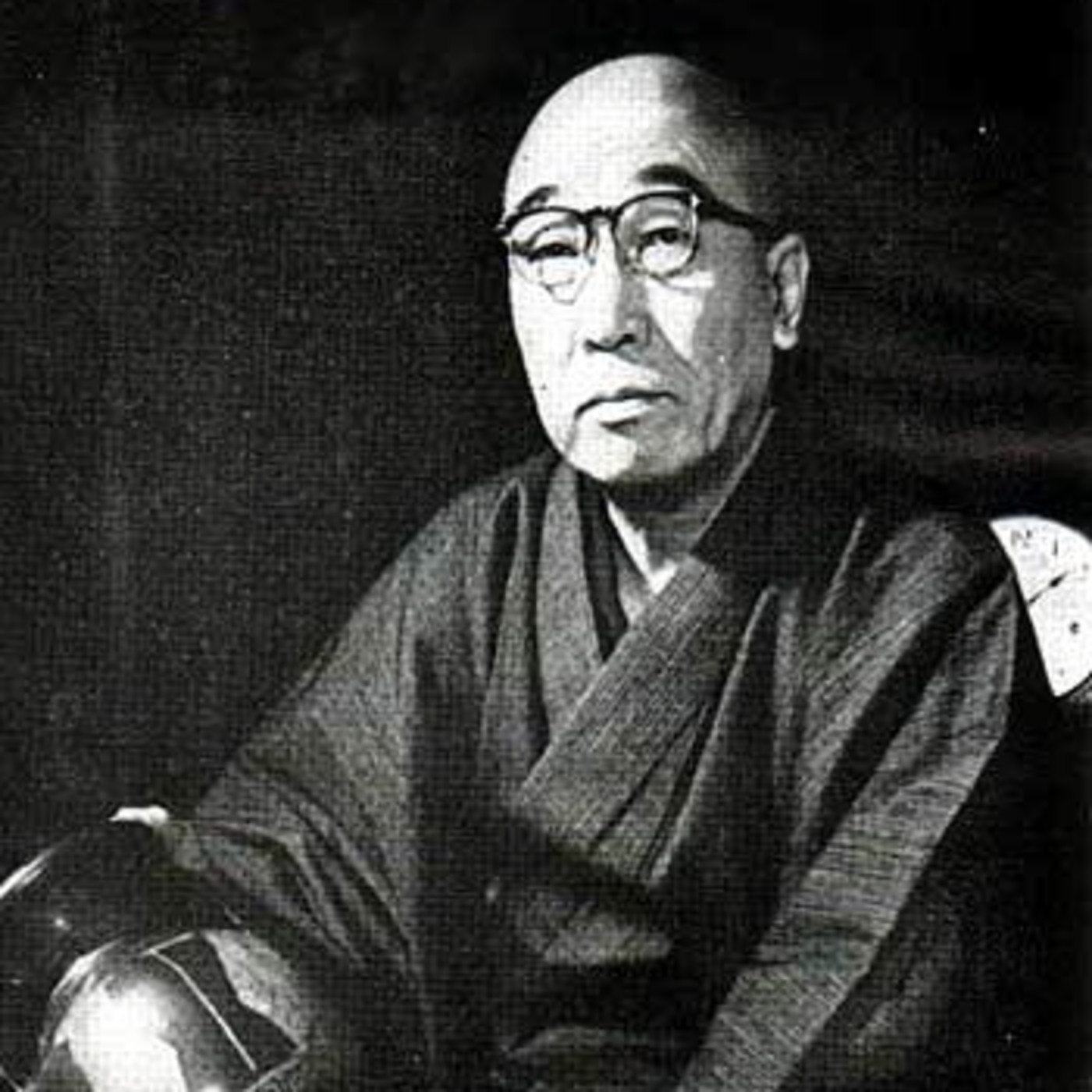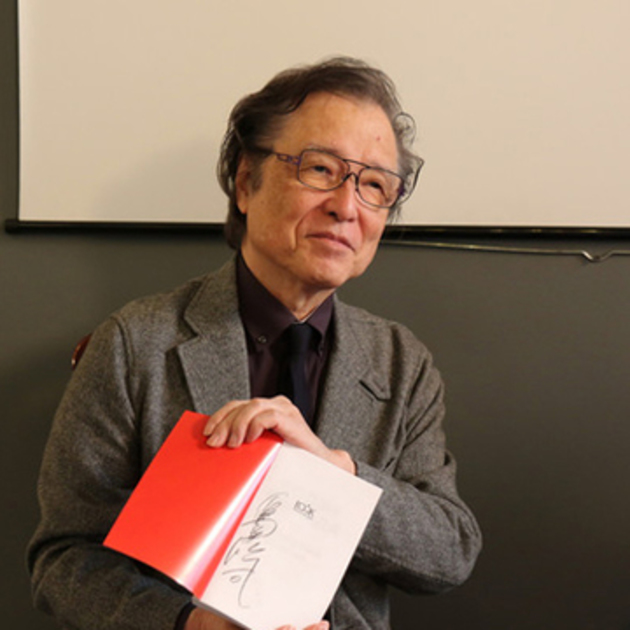Shouji Shimada is the most famous author of detective novels-honkaku in Japan and abroad. His two books "Tokyo Zodiac" and "House of Crooked Walls" have already been published in Russian and have become a breakthrough into the world of the Japanese detective story, which Russian fans of the genre have forgotten since the last "premieres" of Edogawa Rampo. According to the Eksmo publishing house, which brought Simada's books to the Russian market, the third detective of the writer is now being translated. This became an occasion for "Probe Novosti" to get to know Mr. Soji himself, and with a modern Japanese detective.
- Do people like detectives in Japan?
- In recent decades, very much. In the best times for publishers, detective stories accounted for 70-80% of the book market. And even now, when business in our country is in decline, the proportion has not changed much. But there was another situation when it was considered that it was indecent to read detective stories. And Edogawa Rampo is to blame for this.
- For Russian readers, Rampo is the only writer whose name comes to mind when it comes to Japanese detectives. We have heard his stories for 60 years already. And now the trend for manga based on them is “Vampire”, “The Game of Werewolves”.
Edogawa Rampo is the pseudonym of the writer and critic of Taro Hirai. He is a controversial figure: he is considered the founder of the Japanese detective story, and at the same time it is his fault that in Japan the detective story was discredited as a genre. Rampo's first works were published in the 20s of the twentieth century. They are written in the spirit of classic European detective stories. Later, their cross-cutting character - an amateur detective Kogoro Akechi, a kind of Hercule Poirot, turns into a mystic, a psychic. Rampo's idols were Conan Doyle, Edgar Allan Poe and Fyodor Dostoevsky. Rampo even repeated the plot of Crime and Punishment in his first novel, The Psychological Test.
"Crime and Punishment" is a cult novel for us. We read it as a psychological detective, recognized as a model of logic and intelligence.
- There are legends about the incredible popularity of Dostoevsky in Japan.
- For Japanese enlightened youth, Russian literature has always been a must-read. "Crime and Punishment" is a cult novel for us. We read it as a psychological detective, recognized as a model of logic and intelligence. But we know that in Russia the story about Raskolnikov is not considered a detective story.
- And now we would call Boris Akunin the most Japanese writer. Do they know his books in the Land of the Rising Sun?
- Akunin is famous in Japan. The writer's books are sold in all bookstores. I have his Leviathan. I’m reading it right now. And I would very much like to meet him when I finish reading. And it's good that thanks to Akunin's books, Japan was better known in Russia. Many thanks to him for that. As far as I know, Akunin speaks Japanese.

- Back to Rampo. His imitation of Allan Poe is understandable. The Japanese love horror movies ...
- We are close to this direction in art: literature, cinema, theater, painting. The traditional Japanese oral folklore genre kaidan - a horror story, a story about the supernatural - dates back to the 17th century and is in demand to this day. His task is to scare the listener. Modern writers find it easy to compose such texts, and publishers benefit from publishing them. Rampo grasped this pattern and used it to increase his popularity, or rather circulation. True, for this he had to abandon the classic Anglo-Saxon direction in the detective story, go to dark fantasies and turn into a "poet of the night." Later, characters from the Edo-era freak circus appeared among the heroes of Edogawa, which discredited Japanese detectives. In the middle of the twentieth century, they were ashamed to read in public, like "kibyoshi" - entertaining reading with elements of an erotic novel, secondary, low-quality, even anti-social novels worthy of blame. Both Rampo and his followers' detectives and kibyoshi were published under yellow covers to warn readers of the unreliability of such literature. And her fans hid their addiction under an opaque wrapper. Although, in my opinion, many of Rampo's works, especially his essays, are decent literature, and early intellectual stories are logical and filled with original moves. So I really love Rampo. And, of course, he never treated him with contempt.
Because of their mentality, the Japanese do not easily understand the essence of detective stories.
- It turns out that honkaku, the genre of detective story in which you work, does not have Japanese roots?
- Not certainly in that way. From the 18th century to the present day, our bestseller is "Jinkoki" - a collection of puzzles to charge the mind, reminiscent of honkaku. And the Japanese detective also has French roots. In 1888, Ruiko Kuroiva's novel "Hitoka Onika" was published in Japan - a copy of the French detective "The Case of the Widow Lerouge" by Emile Goriot, where there are two detectives - the main one and his student. And then Japan discovered the American Van Dyne with his realistic detective stories, similar to the works of Agatha Christie. More precisely, it was Agatha, without knowing it, writing under Van Dyne, who formulated "20 rules for writing detective stories." It was these circumstances that led to the emergence of honkaku.
- A difficult path ...
- The Japanese, due to their mentality, find it difficult to understand the essence of detective stories. What is it? Template stories with a plot developing within a given format: routine murders, typical images of detectives, criminals? Solid déjà vu with random casualties and standard from beginning to end dialogues? Horrors, anomalies and scary stories are closer to the Japanese, they have more emotional component, room for fantasy. And do not forget that Japan for a long time remained a closed country, where new literary trends did not penetrate. After the war, the situation changed.
- We can say that the Japanese have grown to honkaku.
- And it took over fifty years. After all, the term itself was invented by our writer Saburo Koga in the second half of the 1920s. But since Koga did not describe the principles of honkaku, the genre did not catch on, almost forgotten and resurfaced in the 1980s when I and other writers came along.

Edogawa Rampo is the father of a Japanese detective
- Something, but the emotional component in your novels is enough. Especially in the House of Crooked Walls. One house with asymmetric walls, a collection of masks, antique furniture, fireplaces is worth it! From the windows of the house you can see how the wind is driving huge ice floes across the Sea of Okhotsk. Guests who have come to celebrate Catholic Christmas listen to Wagner's disturbing music. True, they come together to the light melody of Cole Porter, but then Wagner sounds more and more often. The author warns: yes, we have a party, but do not try to leave it too early, miss a lot of interesting things.
- Honkaku detectives usually take place in the house. This is how Van Dyne "bequeathed" in his set of "20 rules for writing detective stories" and Saburo Koga. At the same time, I do not consider such a strict restriction of the scene to be necessary. The author "gathers" the participants in the story, reports something about each. It turns out that everyone has at least one skeleton in the closet. Then the writer describes in detail the circumstances of the crime - what happened before, after, during the murder in other rooms, where who was, what he was doing. A detective who appears from outside builds his guesses on the basis of the same information, for which the author again describes the context, but already placing some accents. At the end of the novel, the detective gathers everyone and, logically explaining the course of events, points to the criminal. I define honkaku as a detective novel in which reasoning comes first. And readers can figure out the culprit on their own or move step by step with the detective. Who chooses what: intellectual competition or observation of the work of a detective.
- With such a strict framework, it is important not to repeat yourself, each book should have different houses, characters, motives for the murder. And the clues. In the Tokyo Zodiac, we dive into the world of astrology.
- A long time ago I studied music and once thought about the compatibility of people in the ensemble. One of the group members told me about astrology. When I analyzed the dates of birth of the musicians and the constellations corresponding to them, I was convinced that it works. Later I learned about the ascendant *, how it defines a person's appearance and his sympathy. Astrology attracted me with logical and consistent explanations, like in mathematics. I like the absence of emotional assessments and intuitiveness in her, inherent in all kinds of fortune-telling. I drew up my horoscope and found auspicious Venus in the "publishing house". It was then that the idea of the "Tokyo Zodiac" was born - stories about girls and astrology. The book was immediately published, and, therefore, the astrological forecast came true. And yet, astrology is entertainment, by and large I do not believe in it, but I take into account the influence of the ascendant on the appearance, compatibility and general trends in human life. But when predicting the future, I would not rely heavily on astrology.
- If you compete with a detective in search of a criminal, honkaku is no longer entertaining reading. You have to take notes, draw up diagrams, house plans, for example. Not all detective readers are accustomed to this kind of work. Is the popularity of the genre falling from this?
- Interest Ask! In my personal opinion, if you put the reader in such conditions, the popularity of the genre will definitely fall. Of course, such a reading of the honkaku detective has a right to life. But if the reader is forced to carefully read every word, draw up schemes and plans, then the honkaku detective will cease to be reading for idle pastime and turns into work. And yet the reader is deprived of the element of surprise: how could I not have guessed it myself, it’s elementary!
- But your books always have diagrams. If the reader is competing with the detective, should he compose them?
- It may seem that the "Tokyo Zodiac" requires such an approach, but in reality it is not. In my understanding, the characteristics of the honkaku detective that you are talking about are more characteristic of the Murder Game, which is popular in China. Five or six lovers of detectives get together, read the description of the crime and carefully study the items collected in the box, for example, a key, a mask, sometimes a weapon, a diagram of a crime scene, a map of the area and other materials. Then they write notes and try to figure out the situation together. Sometimes such an investigation drags on for several days. The story should be as confusing as possible, let on the wrong track. In the plot of the most popular murder game in Shanghai, reincarnation is laid - the same mysticism, which is inadmissible in honkaku.
- The writings of Agatha Christie, which can also be called honkaku, remain the most widely read detective stories around the world. The popularity of Japanese honkaku is growing, but let's see what happens to it in 20-30 years. Many detective stories, without having lived even a month, are forgotten by readers, even if their authors comply with all 20 rules formulated by Van Dyne. Why is this happening? In my opinion, this is not about theory, not about rules. Isn't the charisma of the detective, the atmosphere, smells, sounds more important?
They are translated into other languages and remain in the history of the works that could amaze the reader, impress him. In them, the connection between characters and crime is so unusual that the reader could not even imagine. Only selected masterpieces, no matter what genre of literature, pass the test of time. They talk more about detectives because of the abundance of television series filmed for them. Works written in other genres are not so noticeable. Perhaps this gives rise to jealousy and envy in relation to detective novels, which, despite the quality of their execution, sell quite well under any circumstances.






